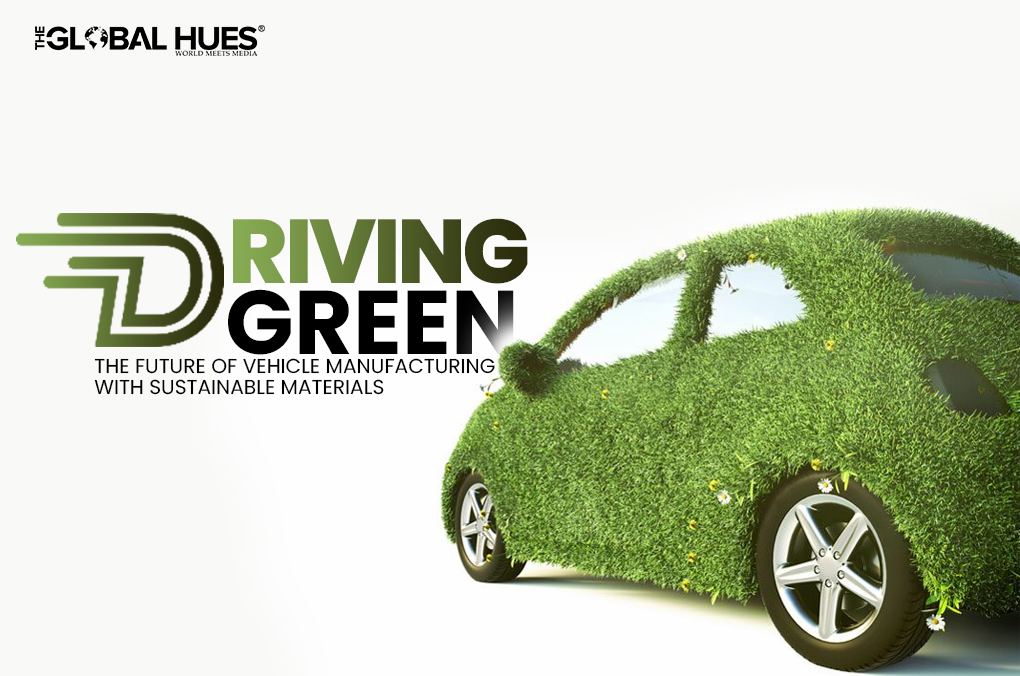“We are not above nature, we are a part of nature.” – Jennifer Nini. Nowadays, vehicle production has seen a revolution with the use of sustainable materials and Bcomp and Volta are at the forefront of this green revolution, making use of sustainable materials in their manufacturing process. This has also prompted other global car manufacturers to move towards these sustainable materials in their component manufacturing processes and production methods.
Bcomp and Volta’s Commitment to Green Vehicle Manufacturing
Natural materials are increasingly used in vehicle production to promote sustainability and Bcomp – a leading name in this field, embraces this change wholeheartedly. Autovista24 states that guided by their CEO, Christian Fischer, the company strives to create sustainable vehicles beyond simple electrification. Fischer highlights that lightweight is crucial here, as it makes vehicles lighter, which helps reduce energy consumption no matter how they are powered. With heavyweight champions of the auto industry like BMW, Porsche and Volvo backing them up already – Bcomp can boast of success with its innovative products. Materials used in Bcomp’s vehicles also reduce weight by 50% and the use of plastic in vehicles by almost 70%. They have also managed to trim down CO2 emissions by a whopping 60% – all thanks to flax fibers produced from European plants.
Volta Trucks is another company that is taking sustainability in vehicle production seriously – a Swedish start-up, it has roots now firmly planted in the UK’s auto manufacturing sector. Earthbound reports that they had recently rolled out an impressive 16-tonne urban delivery truck in 2020, which was a first of its kind. In making these vehicles less harmful to the environment, they incorporated flax-based panels into their design – flax happens to be very versatile. It can replace steel, thus lowering the carbon footprint. These trucks aren’t ordinary; they are electric and their bodies are eco-friendly, making them compostable even after use – as they are made from biodegradable resins. Another great innovation within these trucks is the incorporation of leaf veins – a material inspired by nature itself, which act as ribbed enforcements and is a great substitute for carbon fiber panels having equal strength without the dangers of breaking down or shattering.
The Role of Sustainable Materials in Global Car Production
The world of car manufacturing is witnessing exciting changes, as leading manufacturers are now embracing sustainable materials in an effort to make vehicles of all sizes, including spacious midsize trucks, more eco-friendly. For seats, a new type of leather is emerging from unconventional sources like pineapple leaves, cactus plants and mushrooms. Lithia highlights that brands like Tesla, Ferrari and BMW have already started integrating these plant-based materials into their cars for surfaces, such as seats and armrests. Chrysler has brought out elegance with its use of European walnut wood salvaged from old fence posts. At the same time, Fisker captures the essence of resilience by incorporating reclaimed wood from the devastating California wildfires. Toyota’s Lexus models are using bamboo due to their ability to grow quickly. Automakers are also seeing potential in bioplastics derived from seafood waste, as a London-based company – Shellworks – successfully turned chitin obtained from fermented crustacean remains into robust biodegradable plastics.
As more automakers shift toward sustainable materials for vehicle production, the global auto industry is taking an important step forward in reducing its environmental impact. This change may help decrease emissions and lower carbon footprint, which will be far friendlier to the planet’s environment going forward. Ultimately, embracing eco-friendly vehicles today could go on to play a significant role in determining what kind of future later generations will have.




